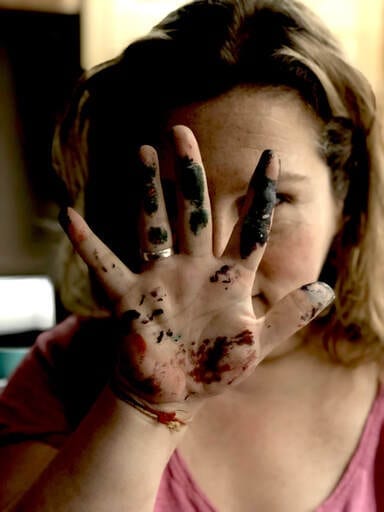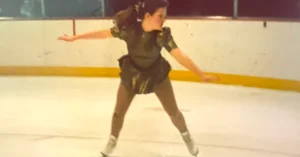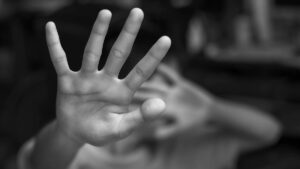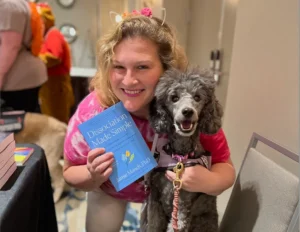The response to COVID-19 is unlike anything I’ve witnessed in my forty years on this planet. Seeing so many events and yes, even whole sporting seasons being suspended, has me wondering if I’m living in some kind of twilight zone. Or in one of the apocalyptic movies that I love so much. While I appreciate the arguments I’ve read about mitigating risk and slowing the spread of the potentially deadly virus, my mixed emotions about everything are boiling over, prompting me to write this piece and share something I want to scream from the rooftops. Why don’t you care this much about risk and contamination when it comes to trauma?
There is so much rhetoric out there, much of it legitimate, about putting the vulnerable at risk by exposing them to the virus. Even though I’ve soldiered on to finish some planned events this week, a concern exists over how people may judge me for potentially putting others at risk. Where is this same level of concern in a country and indeed a world where violence against women and children is the most brutal pandemic of them all? What about the endless stream of brutality and invalidation that developmentally vulnerable children can be exposed to on a daily basis from parents, other family members, teachers or peers? And have you ever stopped to consider the systemic injustices that the poor, underprivileged, and underrepresented minorities in our society have to battle consistently? All of these are a short list of risk factors living in our midst every day that, if left untreated, will tragically blossom into complex post-traumatic stress disorder, addictions, “personality disorders,” dissociative disorders, and cause or complicate a whole host of other physical health conditions like heart disease, hypertension fibromyalgia, or cancer. Read the Adverse Childhood Experiences study and the public health initiatives from that study for a primer if you don’t believe me.
The heart of my teaching as an author and clinical specialist in traumatic stress disorders is that to truly understand the human phenomenon of unhealed trauma and how to treat it, you must break down the word origin. The English word trauma is a direct translation from the Greek word meaning wound. My working definition of trauma is any unhealed wound. You can check out my TEDx talk on the trauma as wound metaphor from 2015 on YouTube for the full teaching. Here are the highlights: understanding how physical wounding, illness, and injury works is the key to understanding all other kinds of trauma—emotional, sexual, spiritual, etc. Think of everything you know about physical wounds. They come in all shapes and sizes. Some may require more urgent care than others or they can be fatal. Whether you are talking about a scrape or a gunshot wound, all wounds need care. Sometimes that care is to wash it out and then give it time and space to breathe, and other times the care needs to be professional. Of course, people with compromised immune systems or other health problems are naturally more vulnerable and professional care may be imperative.
Wounds generally need treated from the outside-in to stabilize, although true healing occurs from the inside-out, over time. Check out the talk if you want even more of the metaphorical parallels between physical and emotional wounding; believe me, I can’t shut up about them. A major point to highlight is that it can feel easier to deal with a physical injury or illness, especially one that is visible like a broken leg or an audible cough. Because they are visible in the realm of the five senses, they are more likely to be validated by others as problematic. And if the risk of a more immediate fatality looms, the concern is generally worse. I argue that this is due to humankind’s overall fear of death and dying, but there’s not enough room in this blog to even begin to go there. Maybe the next one…
Yet if wounds are unseen, like the kind we experience in our hearts, through our emotions, and in our souls, we are more likely to get told things like “get over it,” or “pick yourself up by the bootstraps.” Or my favorite: “You’re triggered all the time! Enough already.” Usually it’s the people who complain about our triggering that are the ones who have done some, if not most of the wounding. Let me be clear—we’ve all hurt other people and we’ve all been hurt by other people. The severity of some wounds may require professional intervention, just like with physical wounding, while other wounds may simply need a little space, time, and tender loving care from another human being like a friend or confidant in order to heal. Having an awareness of how we are wounded and how we’ve wounded others is the key to understanding the risk of contaminating others with the blood of our own unhealed trauma. Hopefully this awareness can inspire willingness to proactively heal ourselves so that we do not contaminate others with our words, actions, behaviors, and the sordid fruit of our own unhealed wounds. Because it is often those we love—our partners, our children, other members of our family, and our friends—that we can harm the most. Until that widespread awareness happens, perhaps we can at least do less harm. In physical healthcare there is a greater sense of awareness that safety measures must be taken to minimize the spread of bodily fluids and pathogens in order to prevent disease. When we heal ourselves emotionally, we engage in similar prevention and initiative for mental health…see the parallel?
There’s another angle for me to share this week, this one much more personal. Like many in the clinical professions, my own struggles with trauma, mental illness, and addiction led me to this work. In recent years I’ve been much more public about my seventeen year journey in recovery from addictions, a dissociative disorder, and bouts of persistent depressive disorder (formerly called dysthymia). Due to reasons having nothing to do with the Corona virus, the last three months have been hell. I’m struggling to date again after an adulthood filled with poor romantic relationship choices resulting from the impact of childhood and adolescent trauma. Just before Christmas, one of my best friends died by suicide and I’m still dealing with a flurry of emotions stemming from his loss. And the mounting pressure of growing a business and becoming a more public figure in my field, I have to admit, is getting to me. I am privileged to have access to the best possible mental health care. I have the most kickass recovery support system in the world, an inner circle of friends that would walk through the fire for me or with me, a daily wellness practice, grounded spirituality, and a solid commitment to self-care. Yet the sheer volume of work and travel, coupled with a growing disconnect from relationships I value, is causing a level of exhaustion unlike anything I’ve ever experienced.
Two weeks ago, I experienced my first significant suicidal impulse in years and earlier this week, it flared up again. There are plenty of factors that keep me protected, yet the reality is that I just want off the fucking merry-go-round. Exhaustion was the main culprit, coupled with a persistent conflict I’ve been feeling over having such success in my professional life while still struggling with interpersonal relationships and my inner world. I hate that the more honest I can get about my suffering, the better that I teach. People draw strength from it, and it can also make me feel like all I was put on this earth for is to teach and to help others. I struggle knowing that so many people see me as someone who inspires them when I still feel like such a train wreck who has been having trouble getting out of bed in the morning on more days than not. On the day of the second major bout, I told my manager and friend that when I meditated and listened to my body, the one word that came up was, “Rest.” I had this overwhelming sense that my body needed a good few weeks to rest and reset herself, in the larger scope of reevaluation I’ve been conducting about my life, my work, and how I spend my time.
Of course, Dr. Jamie the public figure was hesitant to cancel anything—I have commitments and a reputation and a business! Although I have taken time off for my mental health in the past, I feel like I’m in a whole new territory now regarding my schedule and how many people rely on me. I’m not proud to admit this, but I actually said to my manager, “Maybe if I get this Coronavirus thing, I would actually get some rest and nobody would question it.” That was a wakeup call. And when widespread suspensions forced me to cancel my upcoming teaching tour of the UK and Ireland, it was even more of a wakeup call for me that I wasn’t really disappointed. I adore traveling and teaching abroad. And yet my body, mind, and soul needs the rest more. I’ve been granted it due to the risk and contamination precautions around a physical virus, and yes, I feel less guilty taking the time because of this physical manifestation of a disease and its implications for spreading. Yet would people in my work world—the people who book me, the people who come to my trainings, the people who depend on me in my life—have been as compassionate if I needed to rest citing a preventative mental health concern?
Maybe yes, maybe no.
The bigger problems is that me—Jamie—wasn’t even compassionate enough with herself.
Could this be the result of some healing in me that I still have to let happen? Of course. Yet I also believe it’s the result of societal conditioning that none of us are immune to—this idea that physical health care will always take precedence over mental health care. That the medical model trumps the holistic model. And that what shows up in, on, or through our physical bodies and appearances is more important than what is inside.
Enough of this already.
Let’s connect in a way that honors the physical in a healthy way, yet values that who we really are as people is so much more.
The healing power of human connection rests at the center of my work, and this week I’ve been given multiple personal reminders about how this power is where our hope rests. Nothing is more important to me than human connection, and I want to reestablish this primacy before the endless grind of touring and “being public” makes me resent it. My manager and long-time friend Mary, my best friend Allie, and countless other people in my kickass support village have breathed me back to life this week. Whether in person, on the phone, or even through the sometimes cold medium of text, my people were there for me and I am grateful beyond measure for their time and their love. Allie, who lost her own father to suicide, reminded me that in order to get through this I would have to be fully honest about what I am feeling, especially with the inner circle. I teach this stuff all the time! It’s not lost on me that the teacher can be the most likely to forget, especially when she’s flirting with burnout. In those moments, the healing power of friendship and being rigorously vulnerable helped me to hear my own lesson.
I wasn’t expecting to share this vulnerably with my readership this soon, and yet here it is. With the healing power of human connection a potential casualty on the COVID-19 chopping block, a reminder is in order. If my story as its unfolding this week has done this in some small way, I’m truly glad I shared it.





One Response
As I was reading this I first want to say Amen! I also wanted to expand this idea. As a hypersomatic person I find excessive kindness or sweetness repulsive, lol. I also think compassion only takes one so far. It is a fine line between a disabler (overt abuse like the classical emotional and physical) and an enabler (“it’s never your fault!”). My take is we all have strengths and weaknesses and this is why I feel compassion plus exposure therapy are the two hands of trauma treatment. Anyway I am very inspired by your work and love your drive to help. I have that too. Also thank you for all the writings and resources here. It is really wonderful.